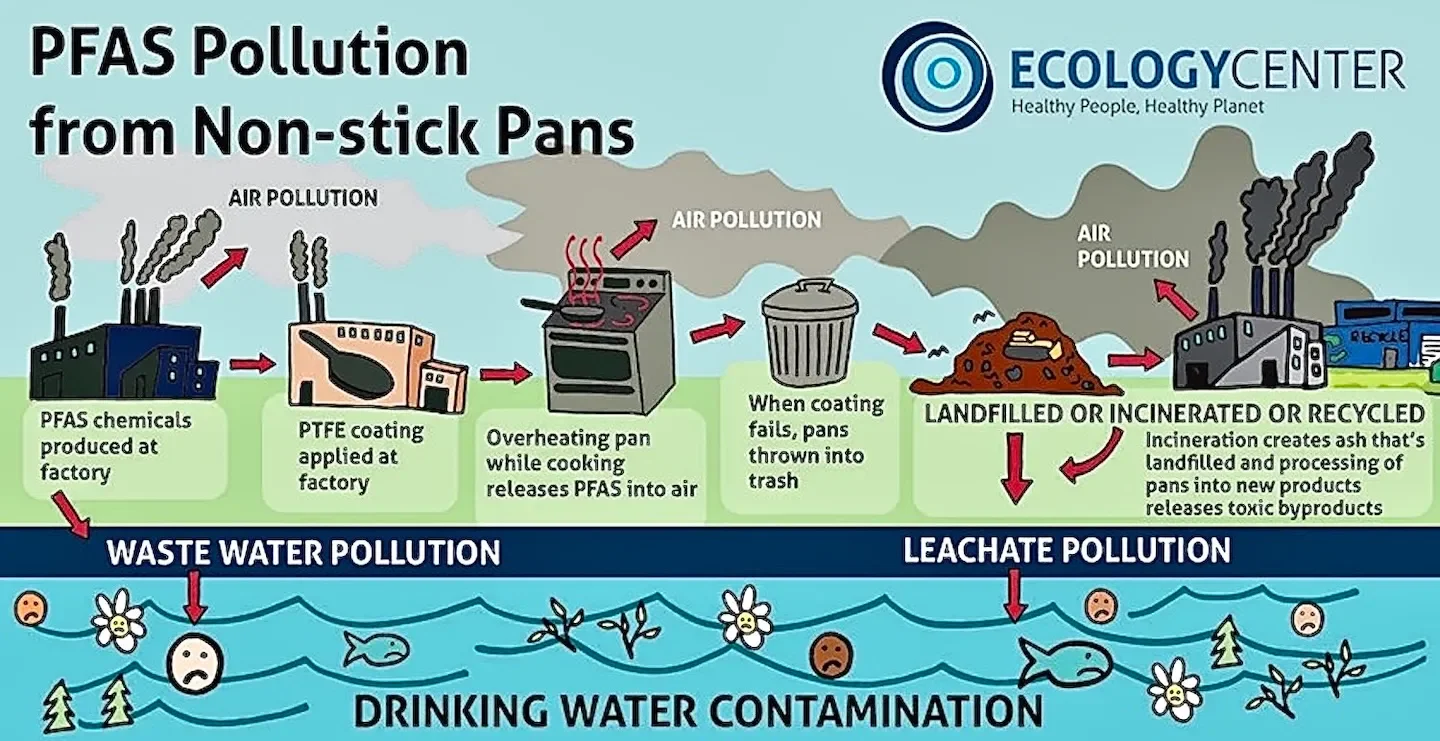
Environmental Working Group: Protect Californians From Toxic PFAS
Governor Newsom has the chance to protect Californians from toxic PFAS in everyday products, and he needs to hear from you. Last week, the California legislature passed SB 682, which would ban PFAS from household items like cookware, dental floss and cleaning products. The bill is now on Governor Newsom’s desk, and he could decide to sign or veto it at any moment. The chemical and cookware industries have been lobbying hard to stop this bill. The New York Times even reported that Rachel Ray and other chefs who profit from their lines of PFAS-coated cookware are speaking out against the bill. Your voice is urgently needed to counter industry pressure. Send message HERE.

Surfrider: Keep Plastic Microbeads Out of Personal Care Products in CA!
California Governor Gavin Newsom is threatening to veto AB 823 (Boerner), a proactive bill that would ban the sale of toxic plastic microbeads in non-rinse-off personal care and cleaning products, and ban plastic glitter in personal care products. Microplastics have been linked to numerous health concerns, including cancer, dementia, infertility, and hormone disruption. AB 823 would ensure that Californians are using safe products and not polluting the state’s waterways. AB 823 would take effect beginning January 1, 2029. Urge Newsom to sign AB 823 HERE.
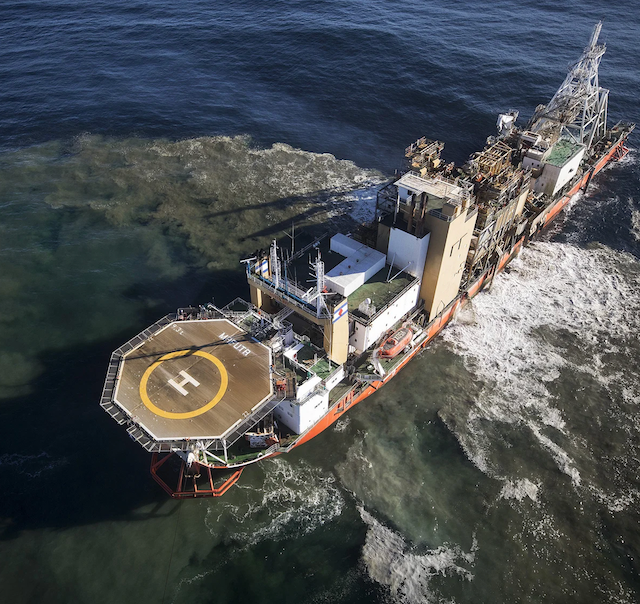
Environment California: Tell the Interior Department – Don’t mine the deep sea
Scientists have barely begun to learn about the fragile, complex ecosystems of the sea floor. This mining plan threatens to destroy deep sea ecosystems before we ever get the chance to learn more about them. Many of the species that live in the depths are long-lived and slow-growing. It could take years for them to recover after their habitat is disturbed by deep-sea mining. In addition, some forms of deep sea mining could create plumes of waste that may travel huge distances from mining sites, with wide-ranging negative impacts on other ocean ecosystems. Tell the Interior Department: Don’t mine the deep sea. Act HERE.

Oceana: Defend The Marine Mammal Protection Act
Write today to ask you your representatives to defend the Marine Mammal Protection Act (MMPA) against a new bill under consideration in the House. The bill would dismantle: a broad prohibition on actions that harm marine mammals and their habitat; reducing bycatch of marine mammals in fisheries; and using science-based management to recover populations to healthy levels. More info and Action HERE.

Santa Cruz Surfrider: Become a Beach Guardian and Help Protect Our Shores
Our beaches are the heart of Santa Cruz County. Join the Surfrider Beach Guardian program to help keep our shores clean and healthy! As a Beach Guardian, you’ll monitor a local beach, organize cleanups, report pollution, and participate in efforts to protect our oceans and coastlines. It’s a fun and impactful way to make a difference and preserve the beauty of our beaches for everyone to enjoy. Let’s protect what we love! Info HERE.
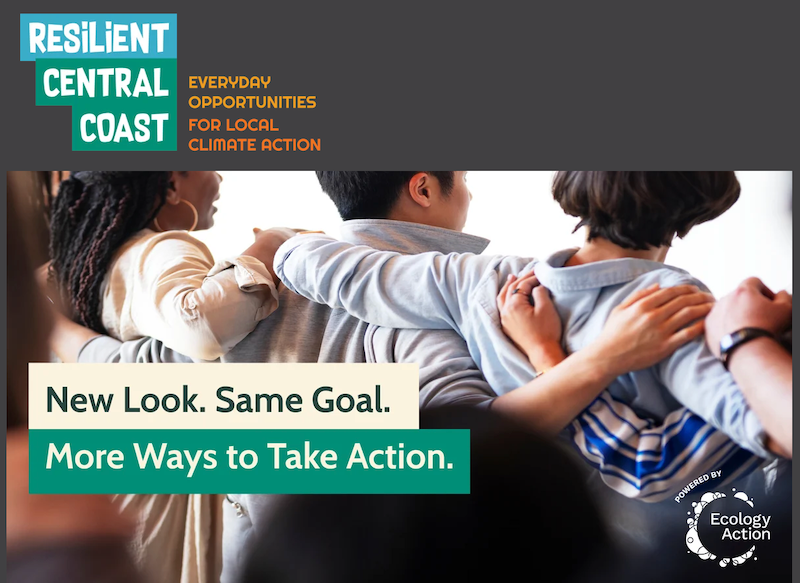
Resilient Central Coast: Everyday Opportunities For Local Climate Action
We’re excited to announce that we have reimagined a new web experience inspired by your interests over the past few months – featuring more event-focused content, especially around emergency preparedness and home electrification. As part of this evolution, you’ll now receive monthly updates directly from Ecology Action, the nonprofit powering RCC and many other local climate initiatives across the Central Coast. What’s changing? You’ll get climate action tips, webinar invites, and local resources—all in one place. No more login barriers—just open access to tools and inspiration. Exposure to more community climate actions. Sign up HERE.
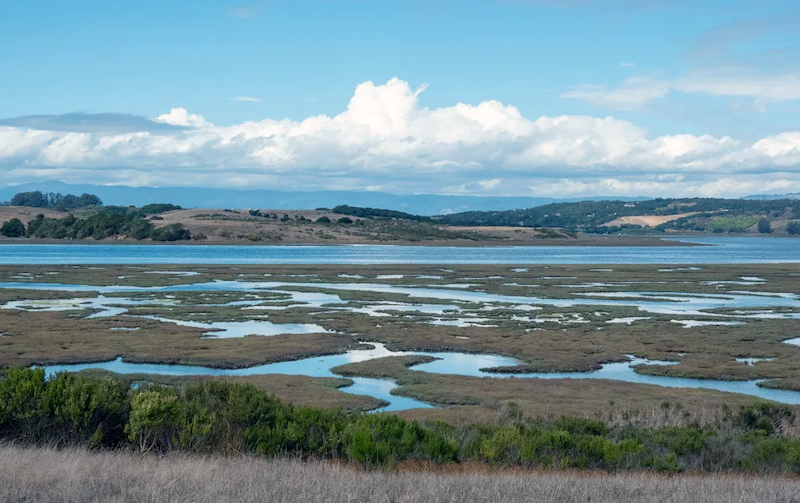
Elkhorn Slough Team: Speak Up to Preserve The Reserve!
The White House Office of Management and Budget proposed FY2026 budget calls for substantial funding cuts for NOAA, including the National Estuarine Research Reserve program. If this budget is approved by Congress, the Elkhorn Slough Reserve — one of 30 Reserves established around the country as hubs for environmental stewardship, research, and education—will face substantial reductions in programs and staffing. It is important for community members to voice their support for the Elkhorn Slough Reserve to their congressional representatives. Federal funding covers 70% of Reserve operating costs. Without congressional support, Reserves could stand to lose this funding after October 1, 2025. Three actions you can take HERE.
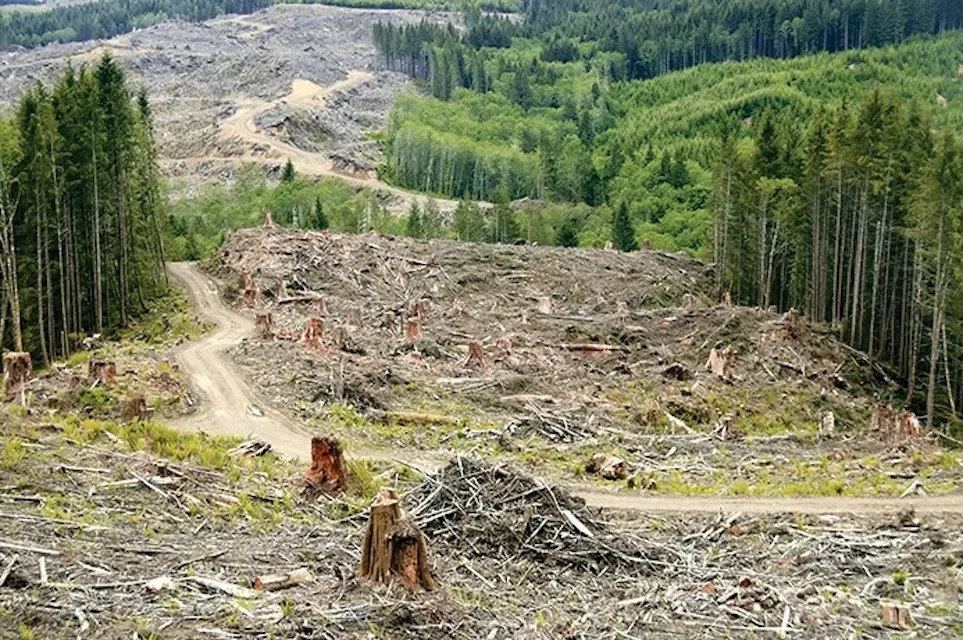
Earthjustice: Protect forests from massive expansion of logging that will make fires worse
Following up on promises to ramp up logging — including clear-cutting — across federal forests, the administration has announced plans to obliterate the Roadless Rule, a landmark land-conservation policy that has protected many of the most pristine backcountry areas of our National Forest System against costly and harmful road building and logging since 2001. The roadless rule has protected 58 million acres of our wildest national forest lands from road building, fires, oil and gas drilling, and logging for more than a generation. More than 90% of fires start within a half mile of roads in our forests. Defend the forest protections we have fought so hard for by telling the administration that you oppose increased roads and logging in our most pristine federal forests, and weakening of environmental protections. Take ACTION

Oceana: Help Protect California’s Ocean Biodiversity
Set gillnet fishing gear is known to have high rates of what is called bycatch — the incidental catching of nontargeted marine animals like sea lions, seabirds, sharks, and other species that often results in harm or death for the entangled animal. These gillnets are still used in offshore ocean waters in Southern California and around the Channel Islands. Assembly Bill 1056 authored by Assembly member Steve Bennett (D-Ventura) — aims to protect California ocean biodiversity from gillnet fishing. This bill will end the use of set gillnets in California, through a long-term phase-out that allows current fishermen to continue fishing through their lifetime but prevents the future transfer of the permit. Tell your state legislators to pass this bill now HERE.
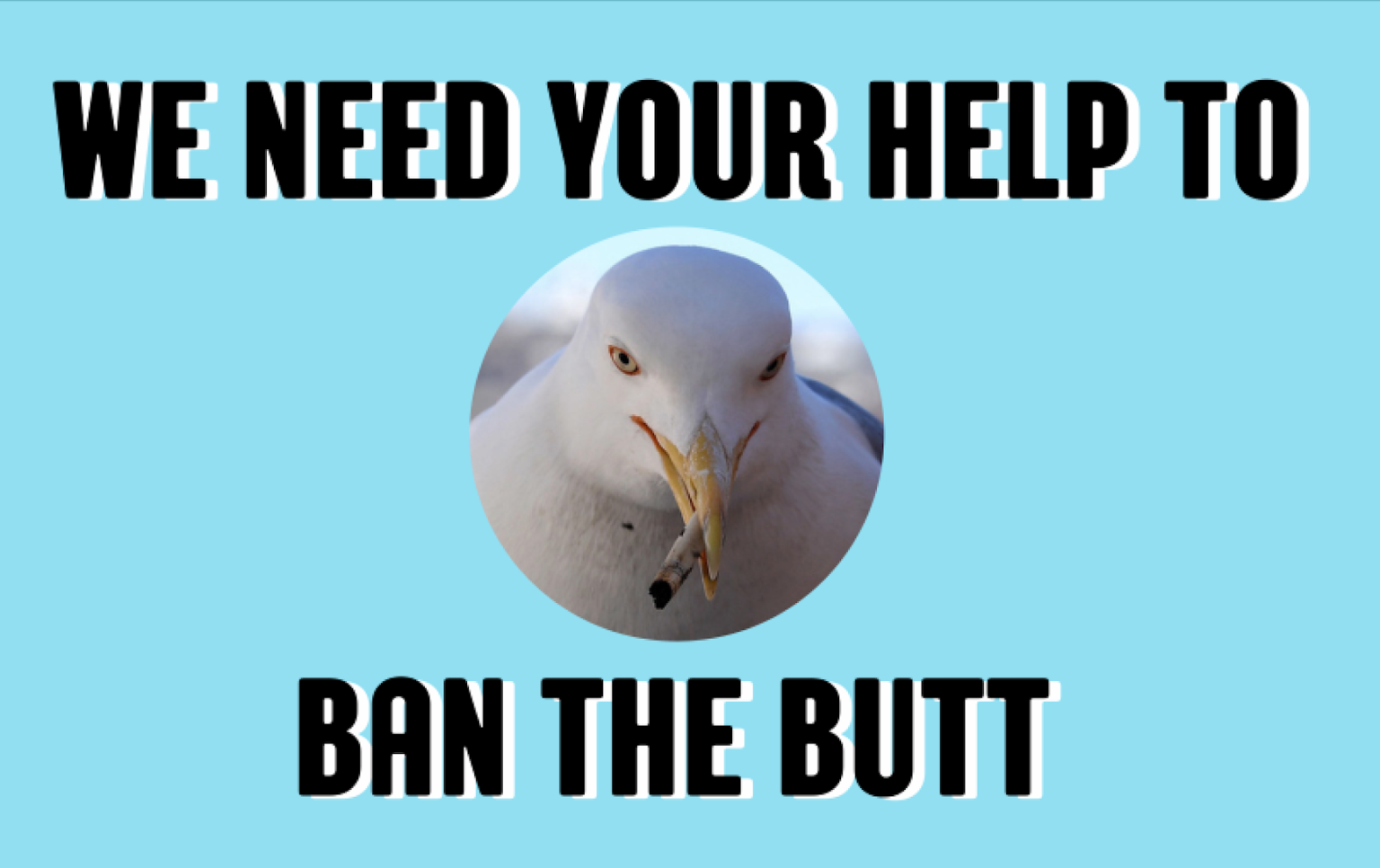
Save Our Shores: Help Activate The Ban The Butt Ordinance
Last fall, something remarkable happened: the Santa Cruz County Board of Supervisors voted unanimously to ban the sale of filtered tobacco products — a bold move to protect our environment from the most littered item on Earth. It was a big win for public health and ocean advocates alike. On June 24, the Santa Cruz City Council unanimously voted to support the ban! More recently Capitola voted for the ban so now that two local cities have pass similar ordinances, the law goes into effect until . Go HERE to support this measure passing in Watsonville, Scotts Valley and/or Monterey.
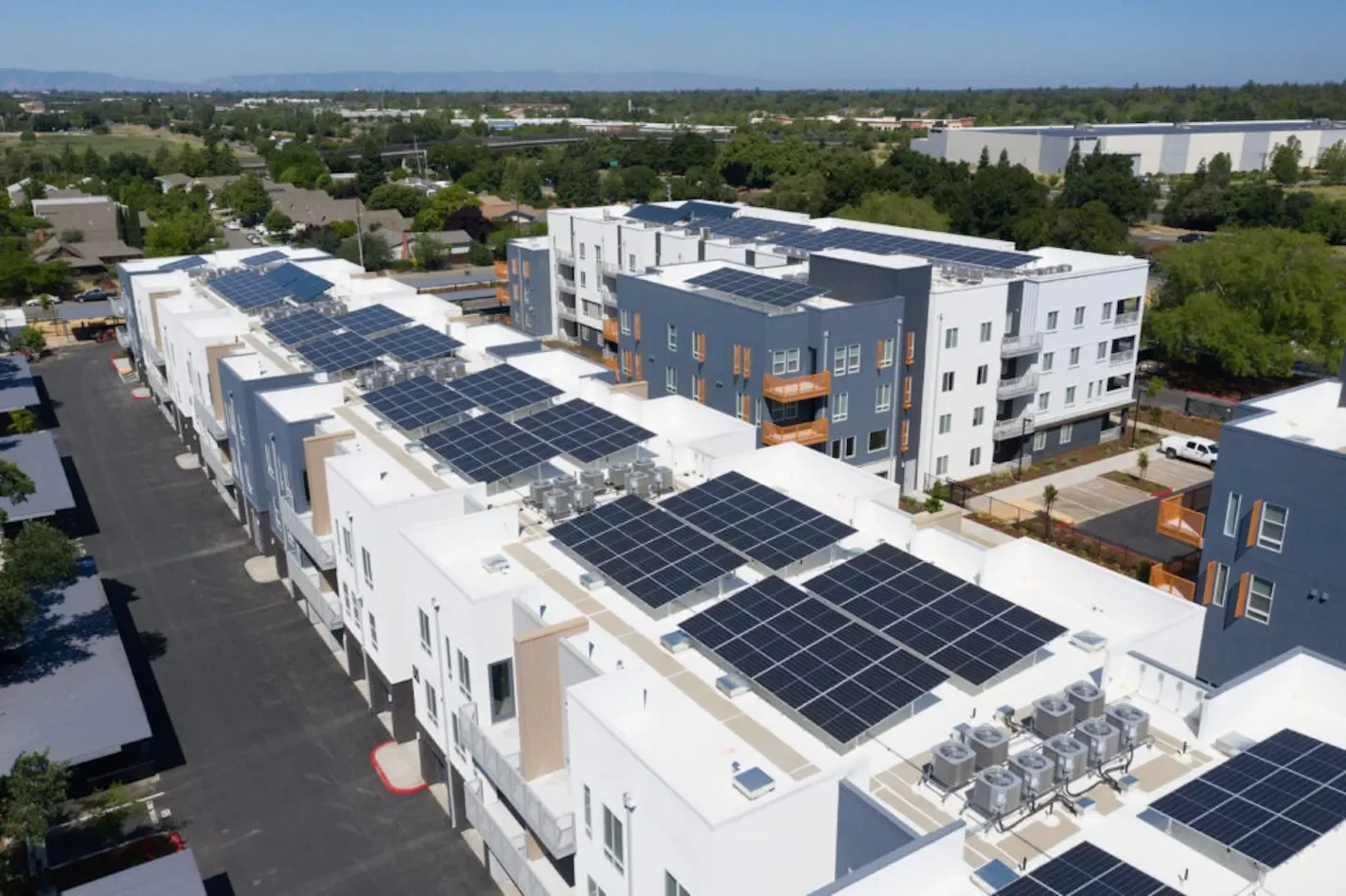
Sun Day: Tell Your Governor To Accelerate Solar Construction Before Subsidies Expire
We’re approaching a critical deadline for rooftop solar—and for our climate. Unless state leaders act quickly, solar tax credits set to expire on December 31 — the result of legislation signed by former President Donald Trump — could slow new rooftop solar construction just when we need it most. Expanding rooftop solar is one of the most immediate and effective ways to reduce climate pollution. Solar panels cut greenhouse gas emissions, reduce demand for fossil fuels, and improve air quality in local communities. A new study shows that the climate benefits of rooftop solar have been vastly underestimated—especially when compared to centralized utility-scale generation. Send a message urging your governor to accelerate rooftop solar before the deadline. Act HERE.
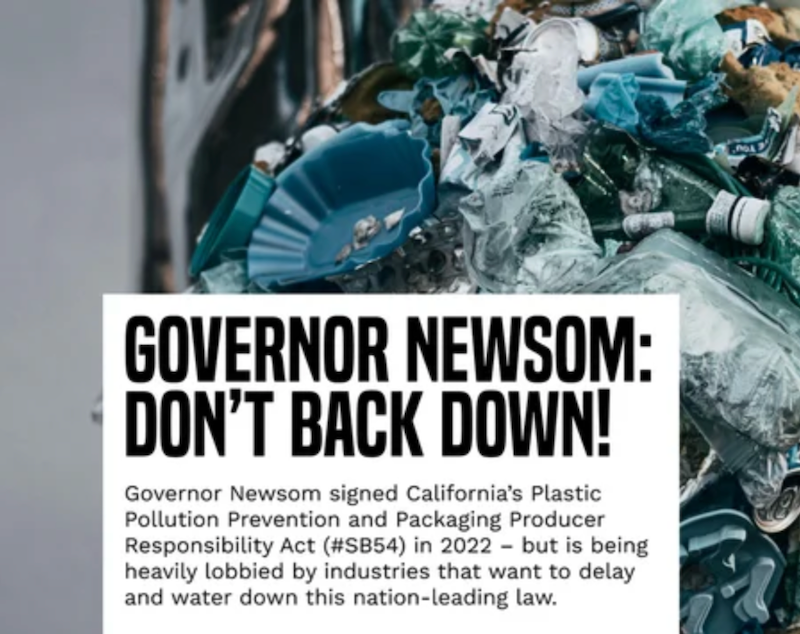
CALPIRG Students: Don’t weaken California’s landmark law against plastic pollution
Plastic cups, takeout containers, and packaging litter our environment and degrade into microplastics that threaten public health. That’s why CALPIRG Students campaigned to pass a nation-leading law against plastic packaging pollution, which requires all single-use foodware and packaging to be recyclable or compostable and requires major reductions in plastic production. Unfortunately, CalRecycle’s latest draft regulations weaken the requirements of the law, creating new broad exemptions and allowing harmful practices to public health such as “chemical recycling,” a process akin to burning plastic. Tell Governor Newsom: don’t allow harmful plastic burning in California. Act HERE.
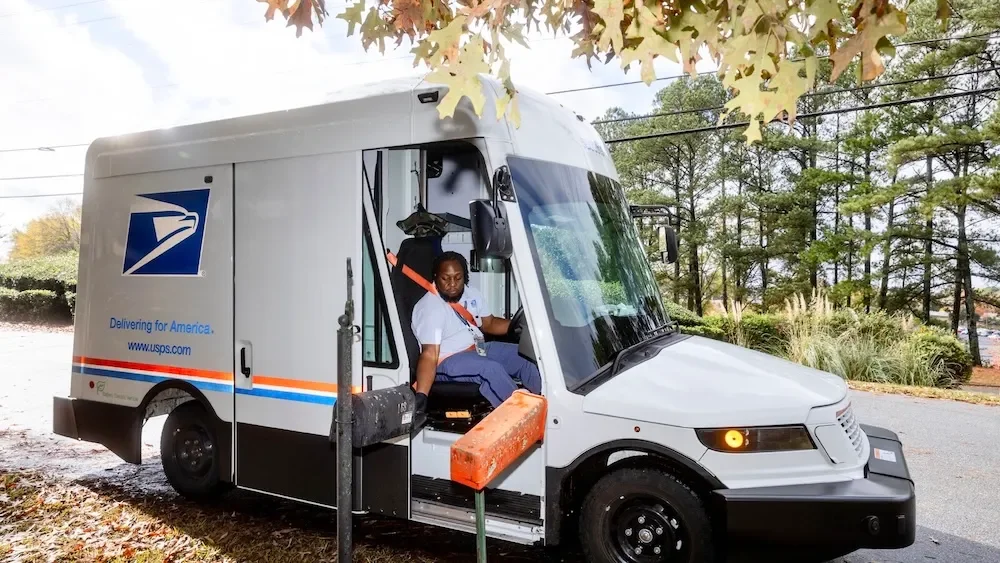
CALPIRG: Tell your representative: Keep the U.S. Postal Service’s electric vehicle fleet on the road
The U.S. Postal Service (USPS) is in the process of electrifying its fleet of delivery vehicles. The first zero-emission mail truck hit the road last year, and now more than 7,200 electric delivery vehicles are bringing Americans their mail. But a proposal in the U.S. Senate would have forced the USPS to sell off its EVs and reinvest in fossil fuel-burning trucks. This supposedly money-saving move would actually cost the Postal Service upwards of $1.5 billion. Selling off trucks we already bought and letting charging infrastructure go to waste just doesn’t make any sense. Even though the proposal was pulled from current legislation, we expect it to be raised again soon — and we need to stop it before it can get started. Take action to stop this wasteful proposal. Tell your representative: Keep the U.S. Postal Service’s electric vehicle fleet on the road. Act HERE.
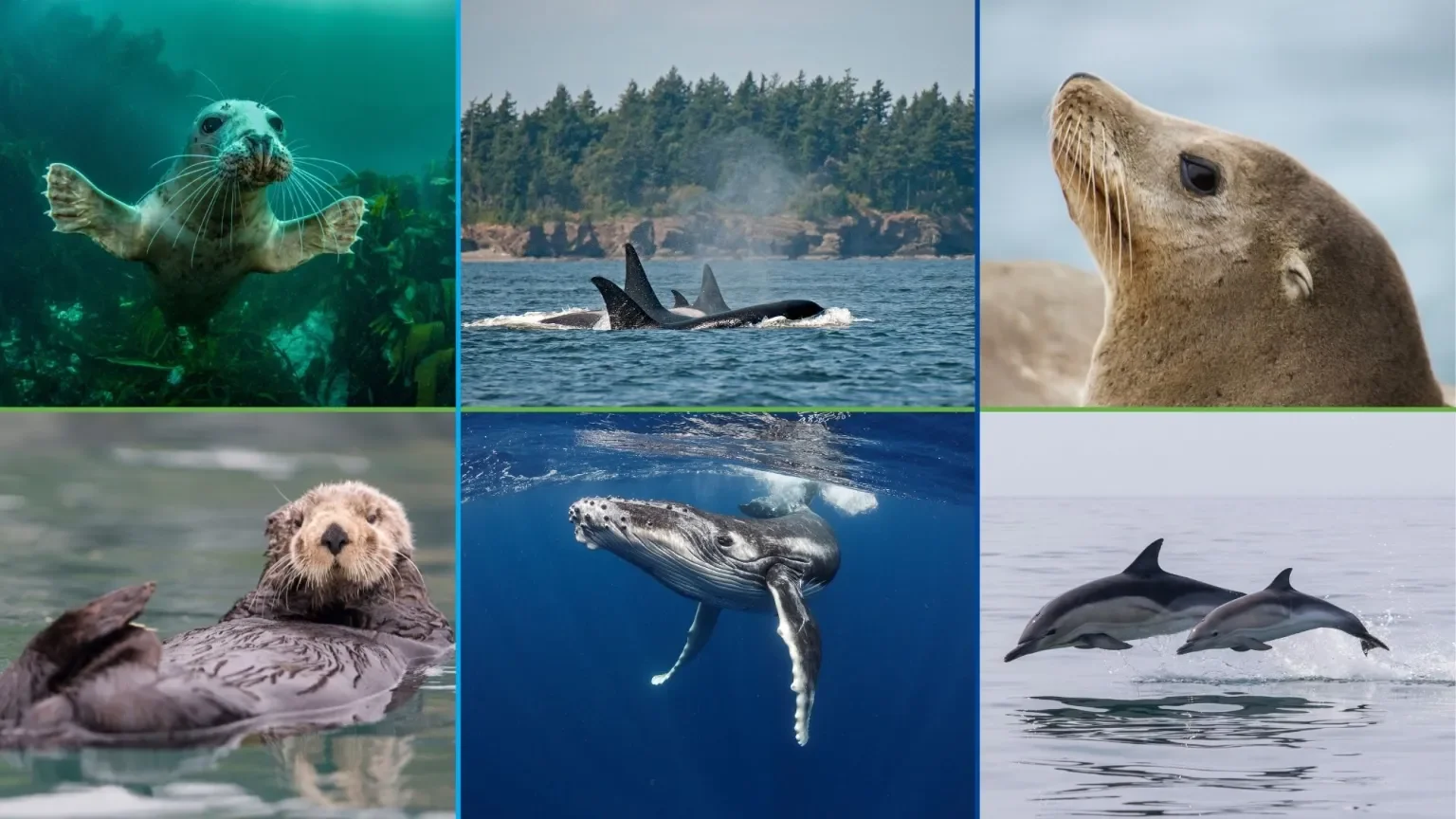
Turtle Island Restoration Network: Save The Marine Mammal Protection Act
A dangerous draft bill in Congress would gut the Marine Mammal Protection Act (MMPA), one of our strongest conservation laws. It would drastically weaken protections for whales, dolphins, manatees, and seals by lowering conservation standards from “healthy populations” to mere “survival,” stripping science-based limits on harm from industrial activities, delaying critical protections for endangered species like the North Atlantic right whale, and undermining global efforts to reduce marine mammal bycatch. This is not a modernization of the MMPA. Rather, it’s a full-scale rollback that will threaten the lives of countless marine mammals. Take action today to urge members of the Subcommittee on Water, Wildlife, and Fisheries to protect marine mammals by opposing this draft bill. Action HERE.
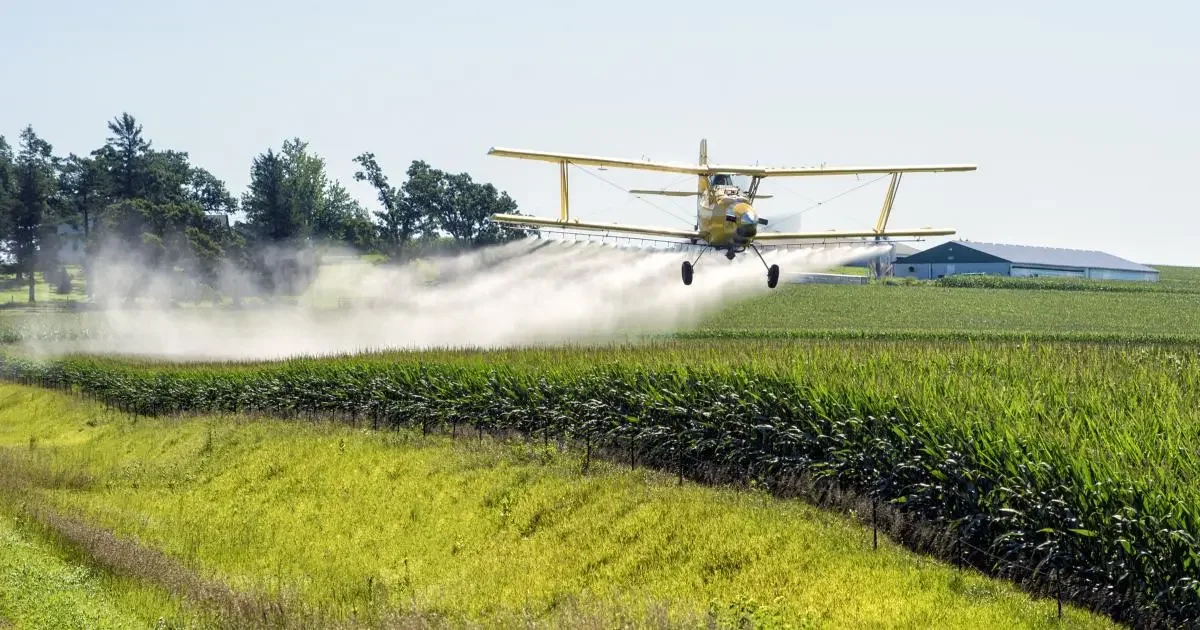
CALPIRG: Tell the EPA: Restrict 2,4-D, a dangerous, drifting pesticide
We shouldn’t be dousing the fields that grow our food with a dangerous chemical from the 1940s — but the latest mapping data shows that vast swathes of America are covered in a toxic pesticide called 2,4-D. We should be leaving 2,4-D in the past where it belongs. Instead, in recent decades, the Environmental Protection Agency (EPA) renewed and expanded the use of this highly toxic pesticide. The herbicide is intended to kill weeds on farms, but 2,4-D doesn’t stay where it’s sprayed. When sprayed over crop fields, 2,4-D can remain airborne for weeks and travel for miles. Tell the EPA to restrict the use of 2,4-D unless and until it’s proven safe. Action HERE.

CalPirg: Tell Whole Foods To Reduce Plastic Packaging
The U.S. has a big plastic problem: Every year, we produce a staggering 35 million tons of plastic waste. Big companies can do a lot to fix that. But when it comes to plastic waste, Whole Foods isn’t measuring up. In a 2021 report, the grocery store earned an “F” score on plastic waste reduction, putting it behind Taco Bell, Walmart and Amazon. We know that Whole Foods can do better and live up to its eco-friendly image. That’s why we’re calling on Whole Foods to cut down on single-use plastics. Tell Whole Foods: Reduce single-use plastic packaging. Act ACTION.
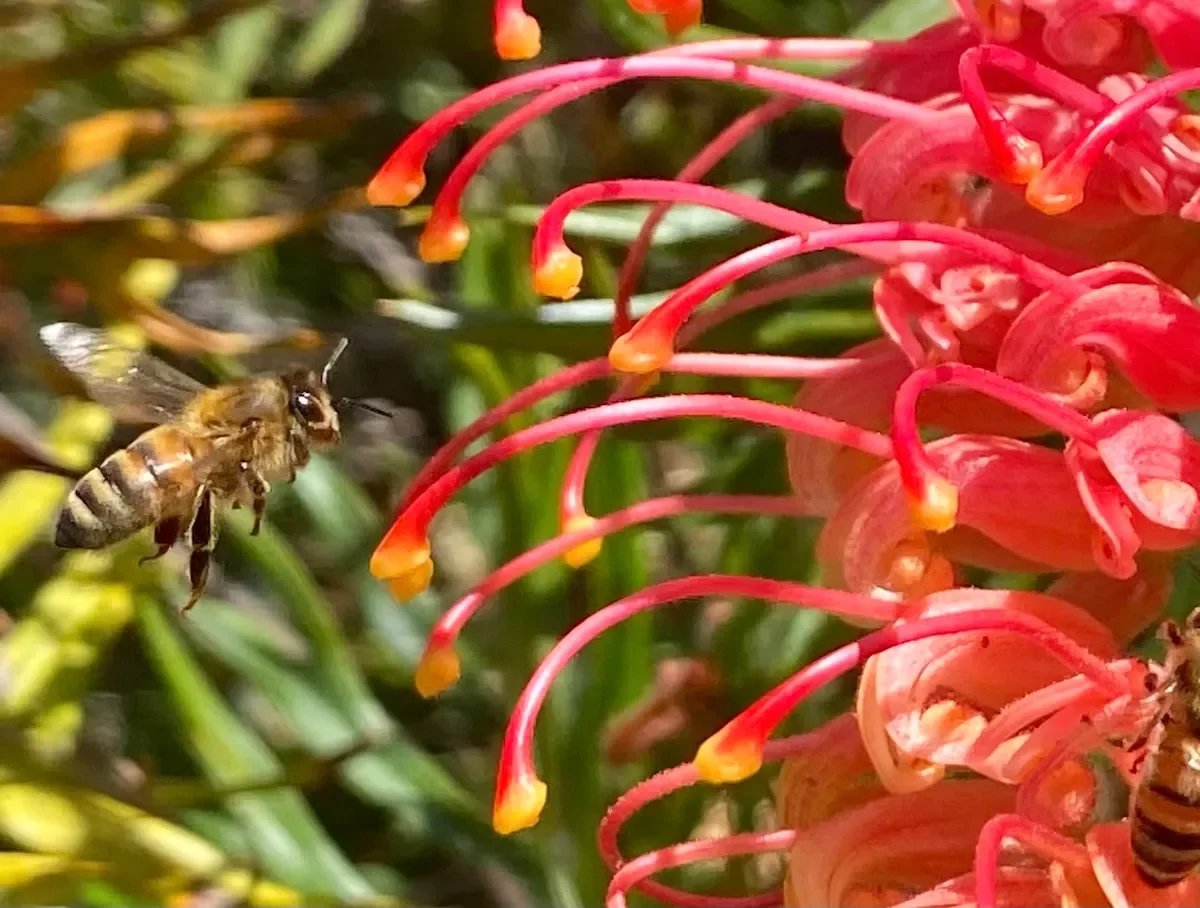
Environment California: Tell Target To Stop Selling Bee-killing Neonic Pesticides
The science is crystal clear: Neonicotinoids are killing bees. And yet neonics continue to be among the world’s most widely deployed pesticides. Honeybee colony losses average more than 40% annually nationwide. Wild bees are even more at risk, and species such as the rusty-patched bumblebee and the Western bumblebee are on the brink of extinction. Of the approximately 50 different species of bumblebees in the U.S., more than a quarter of them are facing some degree of extinction risk. Major retailers, including Target, are selling these bee-killing pesticides. Target can help save the bees if it commits to no longer sell chemicals that hurt pollinators. Join us in urging Target to halt its sale of neonicotinoid pesticides. Act HERE

CalPIRG: Tell Microsoft – Don’t Precipitate A Massive Surge Of Electronic Waste
Update: After October 14, 2025, Windows 10 will stop receiving free security updates, but you can enroll in the Extended Security Updates (ESU) program to get updates until October 13, 2026, by synchronizing settings with OneDrive, redeeming Microsoft Rewards points, or making a payment.
If the company had followed through with its plans to end support and security updates for Windows 10, as many as 400 million otherwise-working computers would have been marked for disposal overnight. 53% of PCs still use Windows 10, and up to 40% of them can’t upgrade to Windows 11 due to hardware limitations. This means that hundreds of millions of PCs may soon add to the piles of electronic waste already in landfills. Microsoft can opted to delay this problem. Tell Microsoft CEO Satya Nadella to keep working computers working by extending free support for Windows 10. Act HERE.

One5C: Your clothes are shedding microplastics — here’s what you can do.
As of 2021, synthetic fibers made up nearly 70% of all materials used in textiles. When these materials get washed, torn, or chucked, they degrade and release microfibers, which are a form of microplastics. Polyester is one of the worst offenders. A single run through the washing machine could emit around 18 million microfibers, one 2020 study found. The best way to address microplastics from clothing (all animals including humans have microplastics in their organs) is to not buy synthetic fibers, no matter how good the end-of-season sale might be. That’s right, don’t buy polyester garments. Second, add a filter to your washing machine. Learn more HERE.
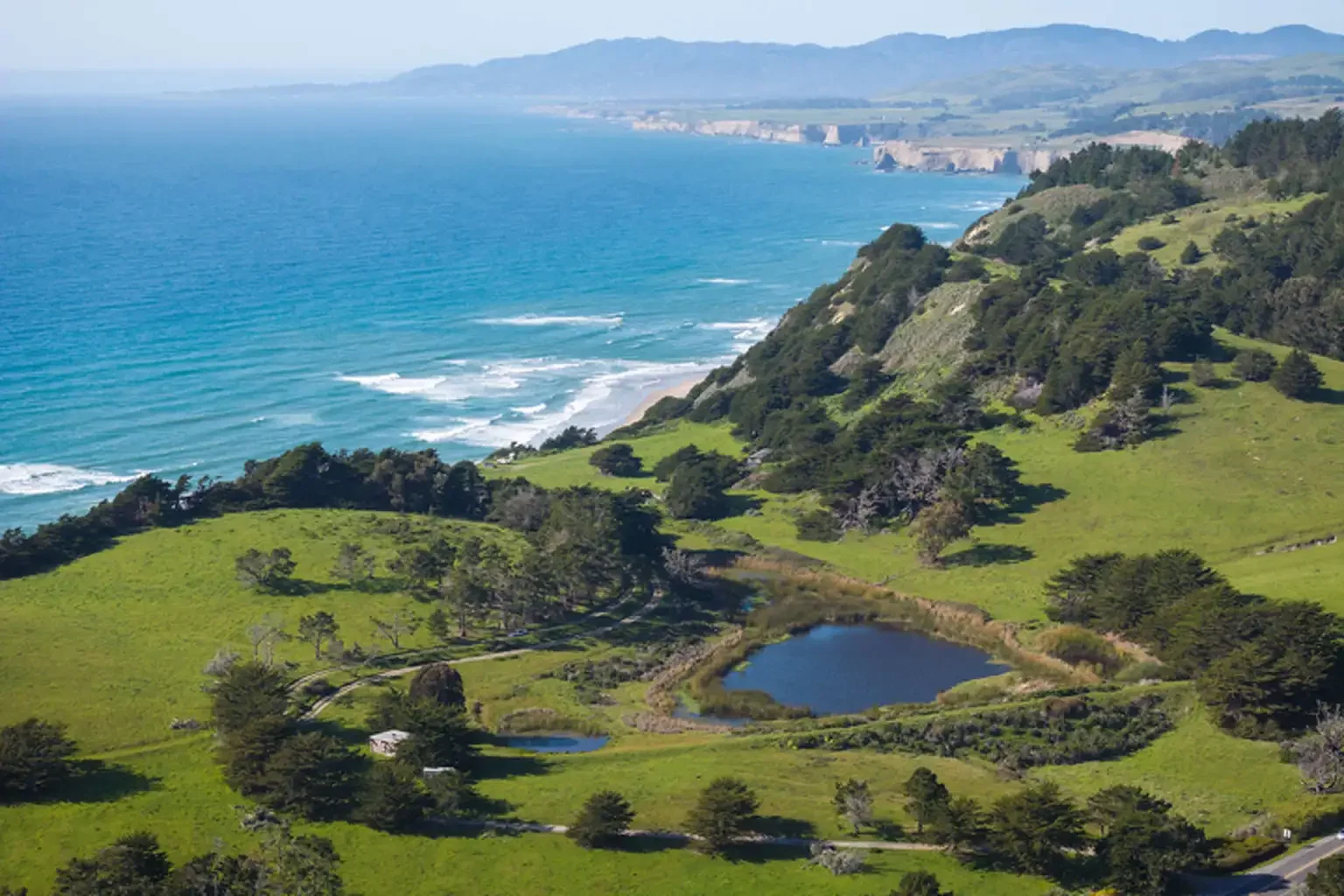
Peninsula Open Space Trust: Preserve San Gregorio Ranch
We have a rare opportunity to preserve San Gregorio Ranch — nearly 200 acres of coastal grassland and Monterey Pine nestled between Highway 1 and the Pacific Ocean in San Mateo County. The Ranch is rich in natural resources, varied habitats, and is home to an abundance of plant and animal species. Its location just north of San Gregorio State Beach and right along the proposed route for the California Coastal Trail means we have lots of opportunities to explore expanded public access. You can help protect San Gregorio Ranch HERE.
